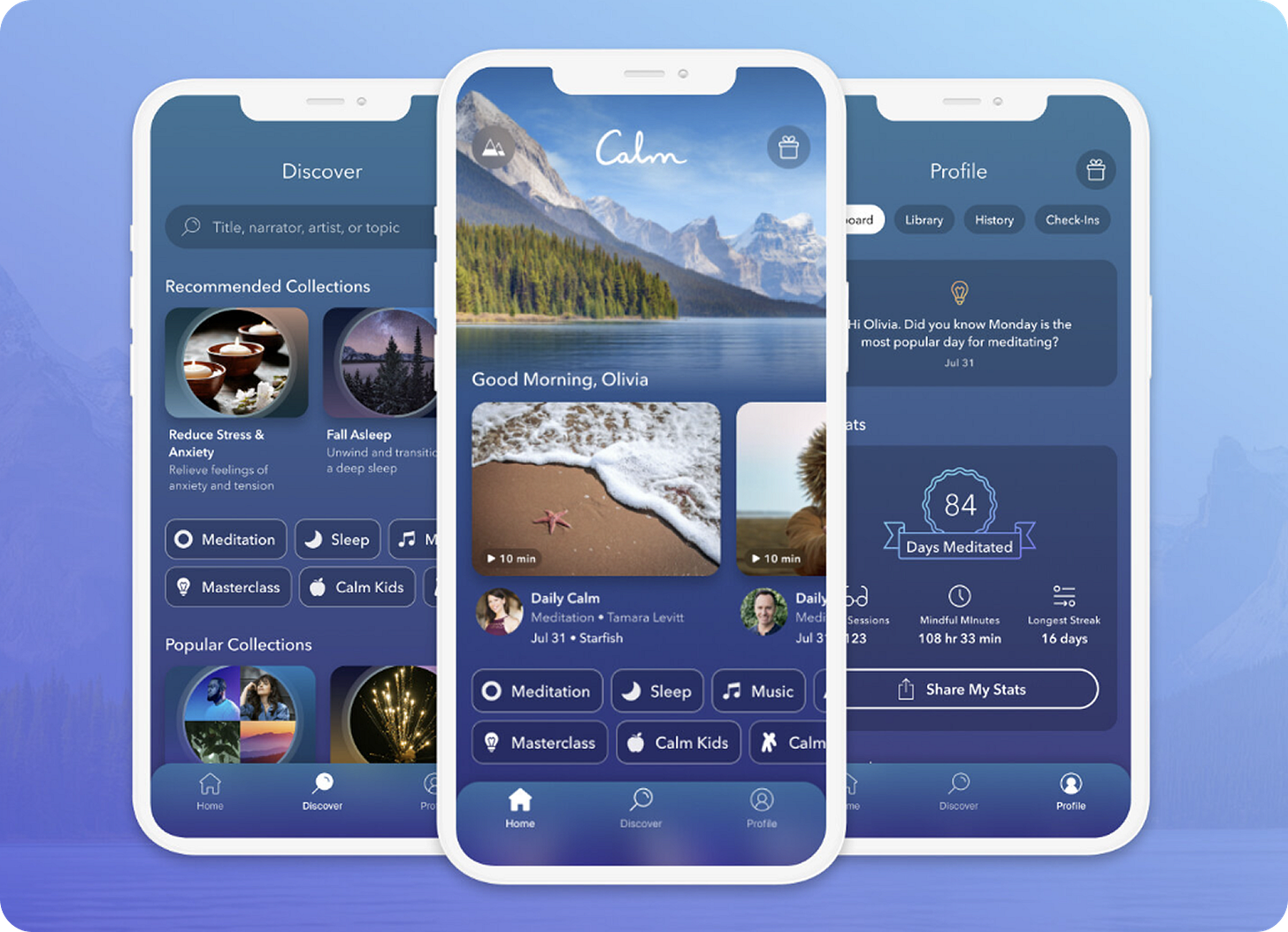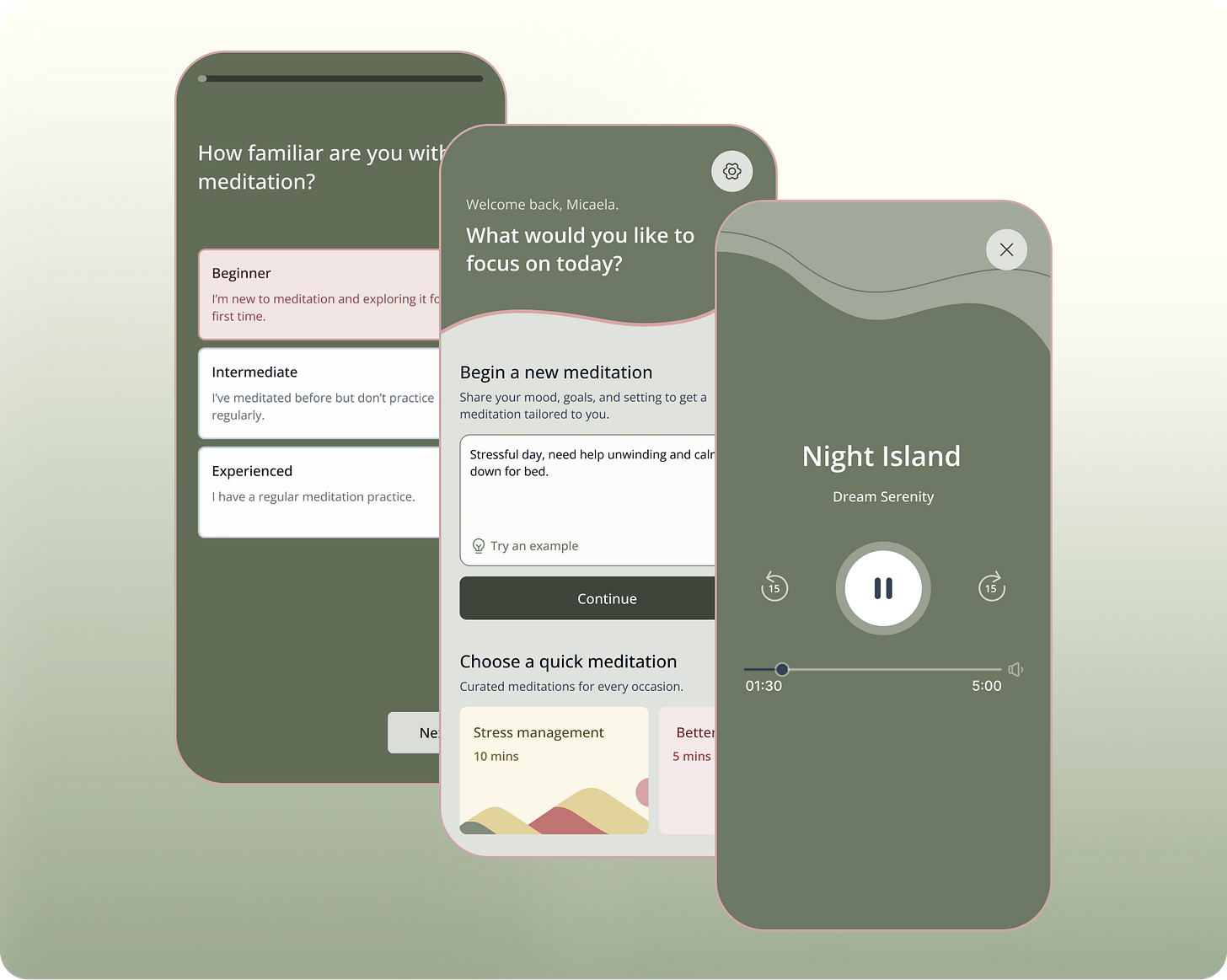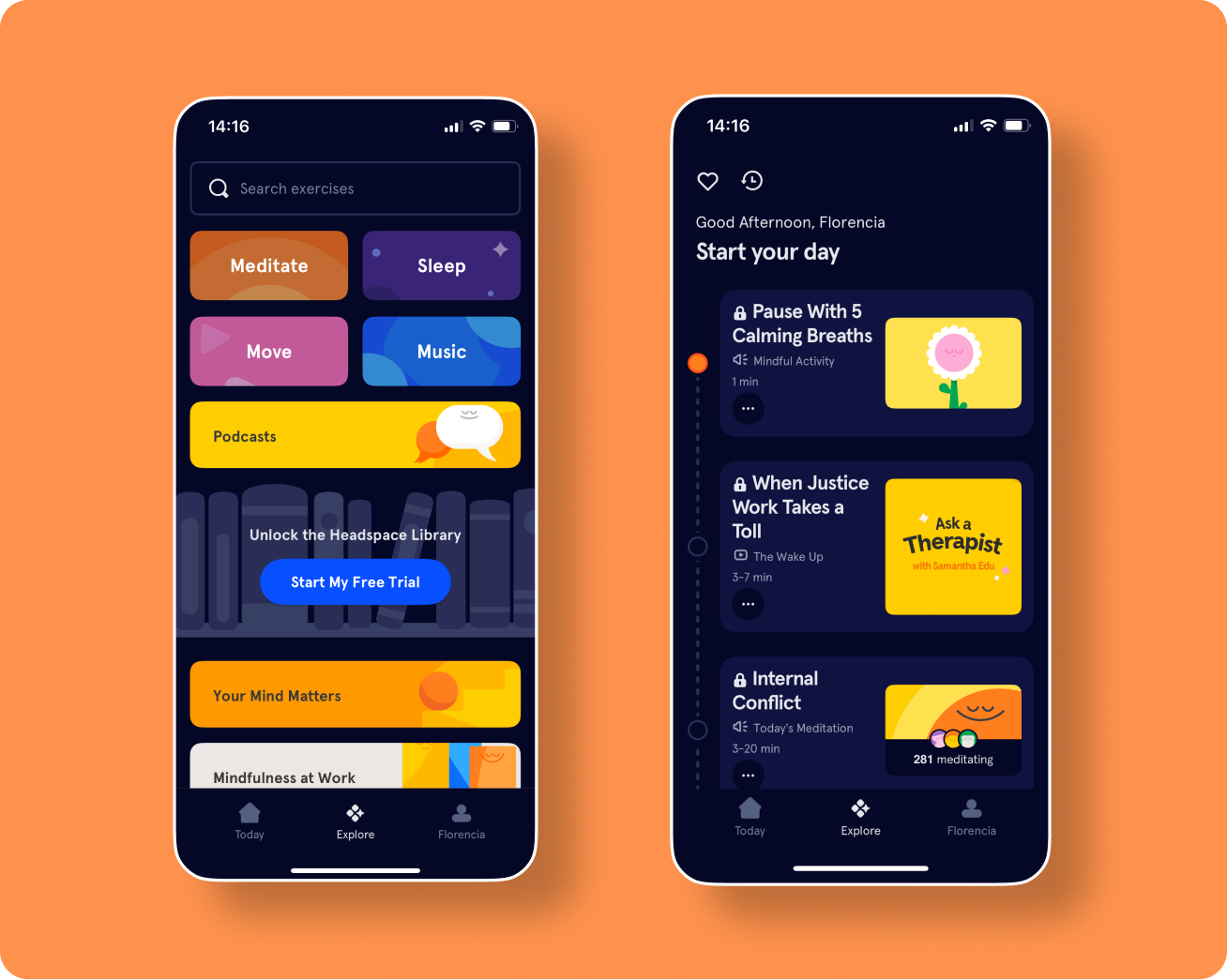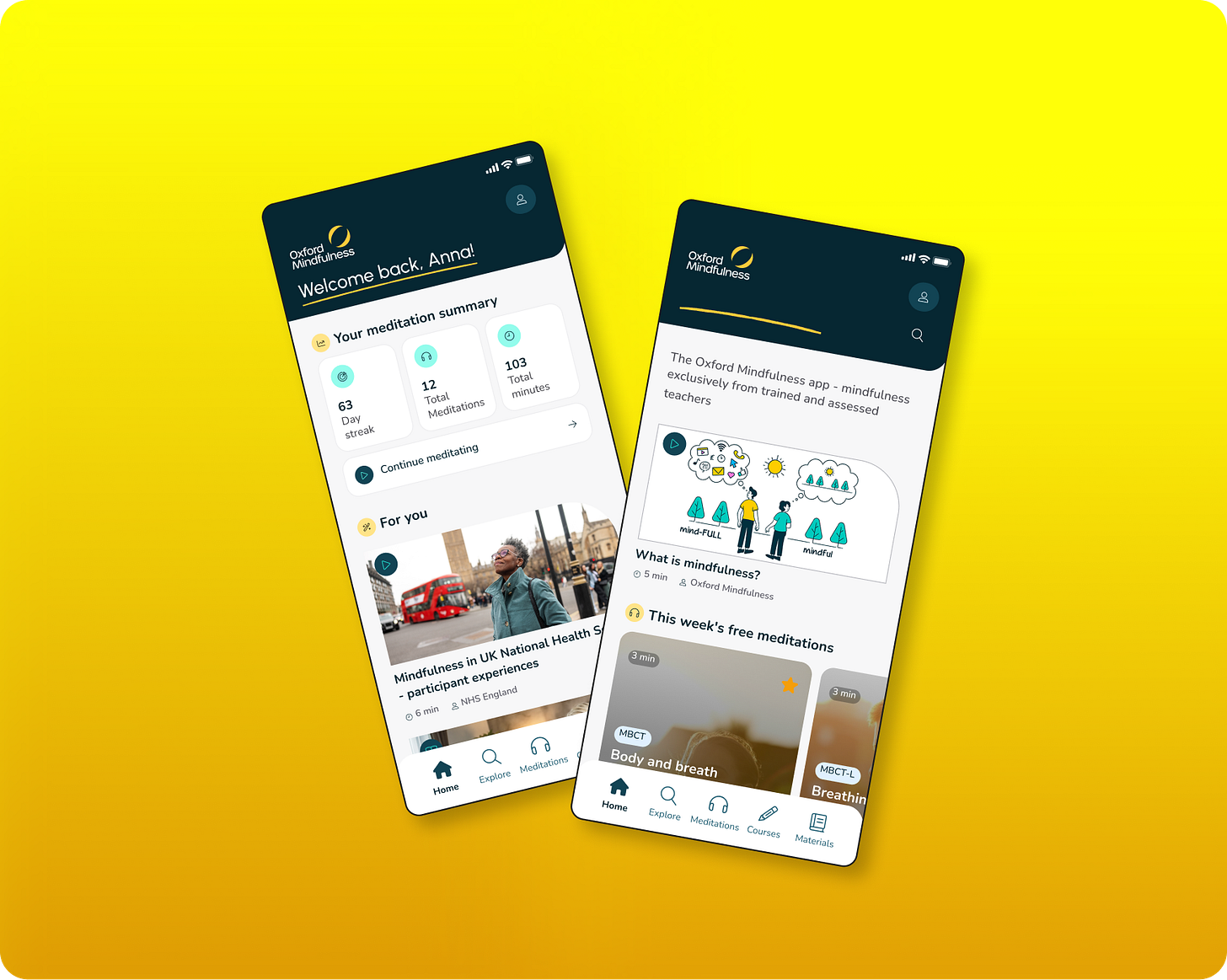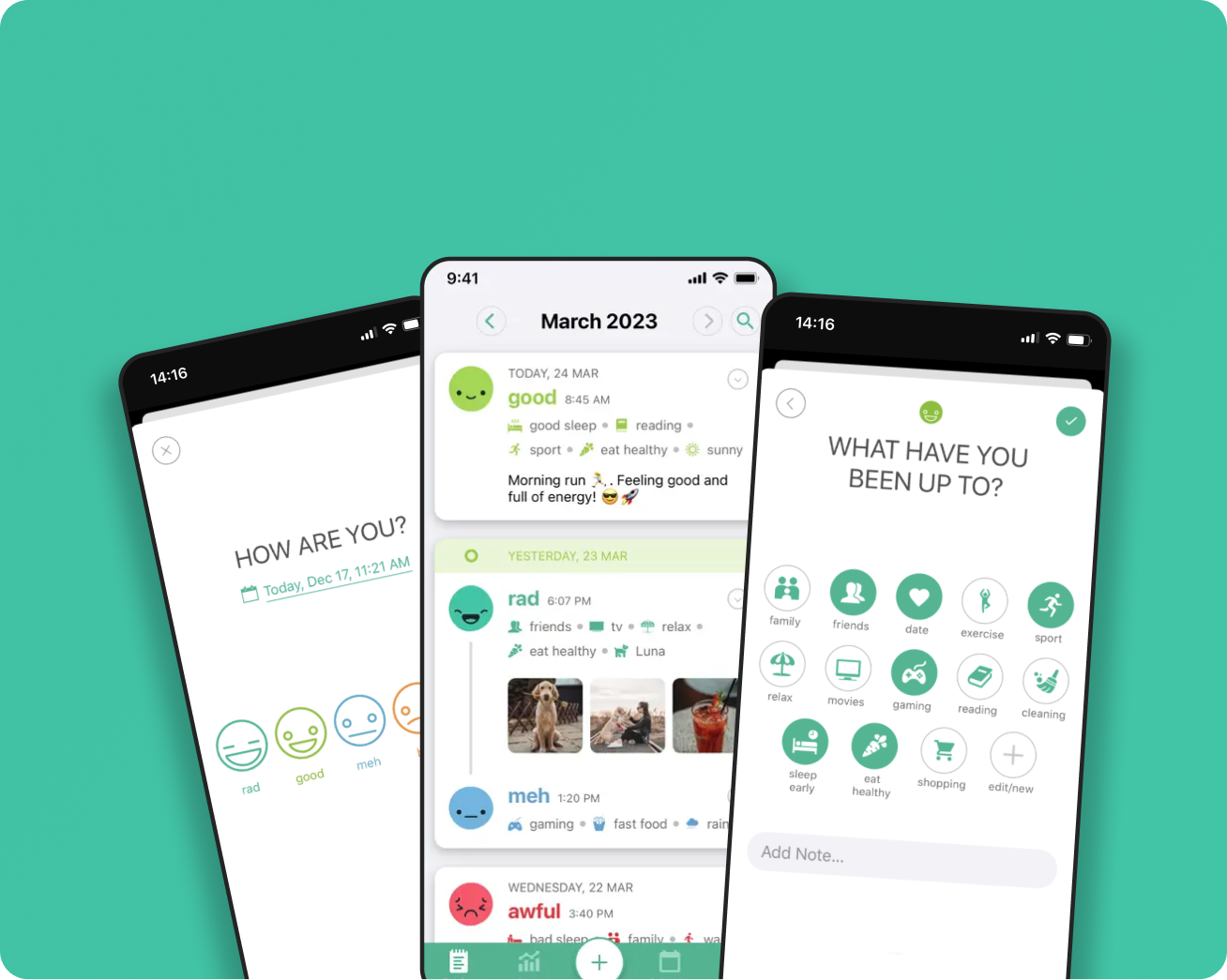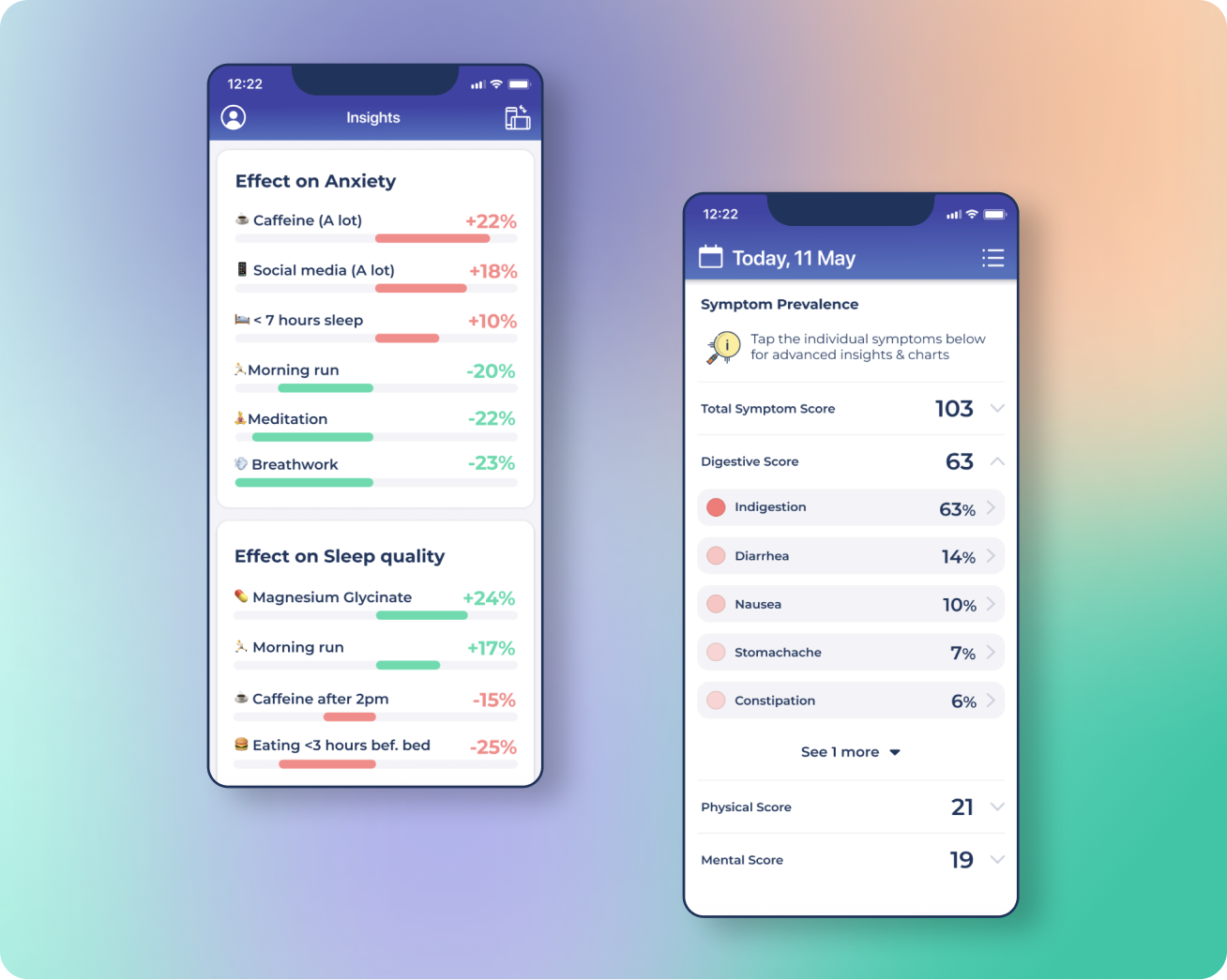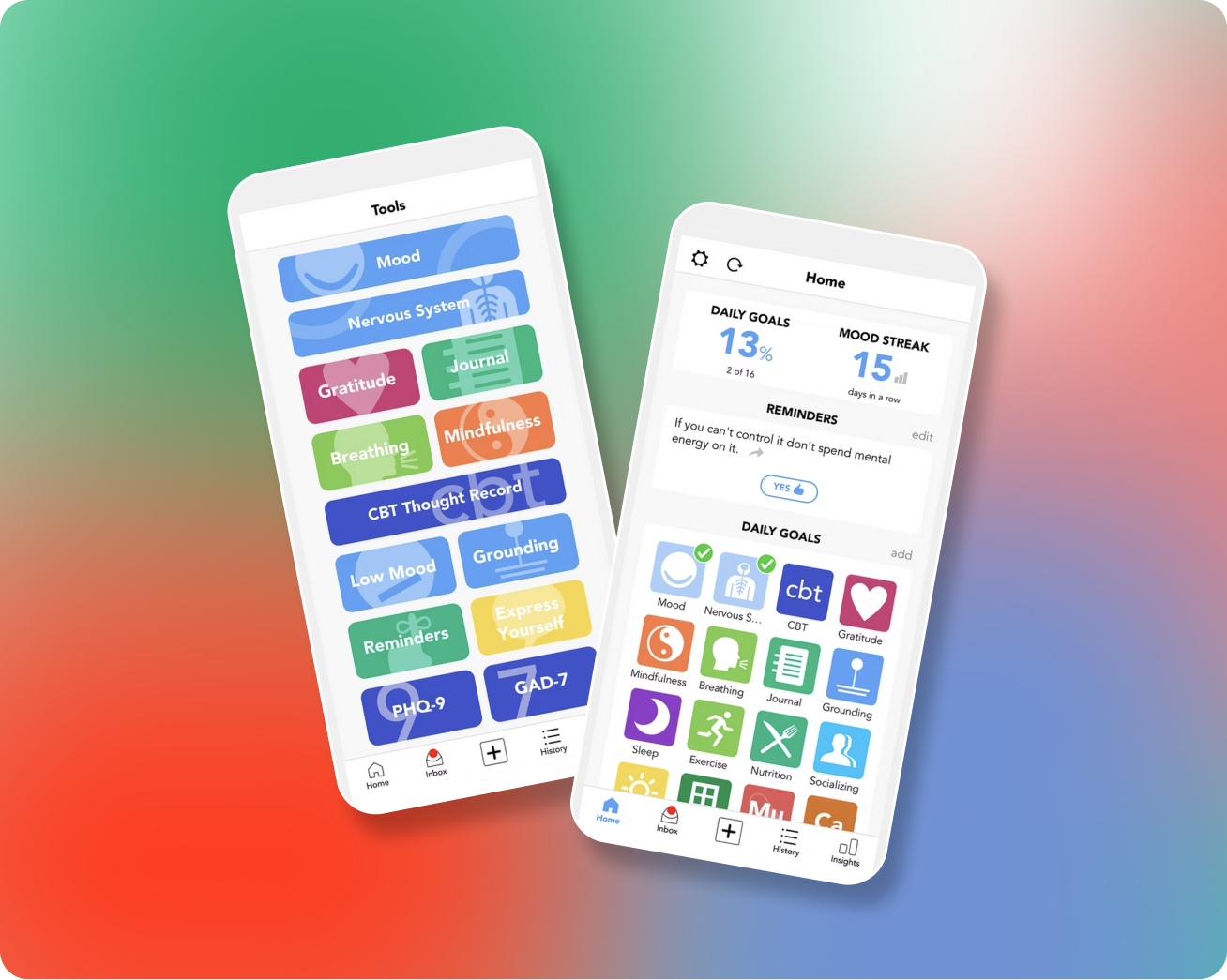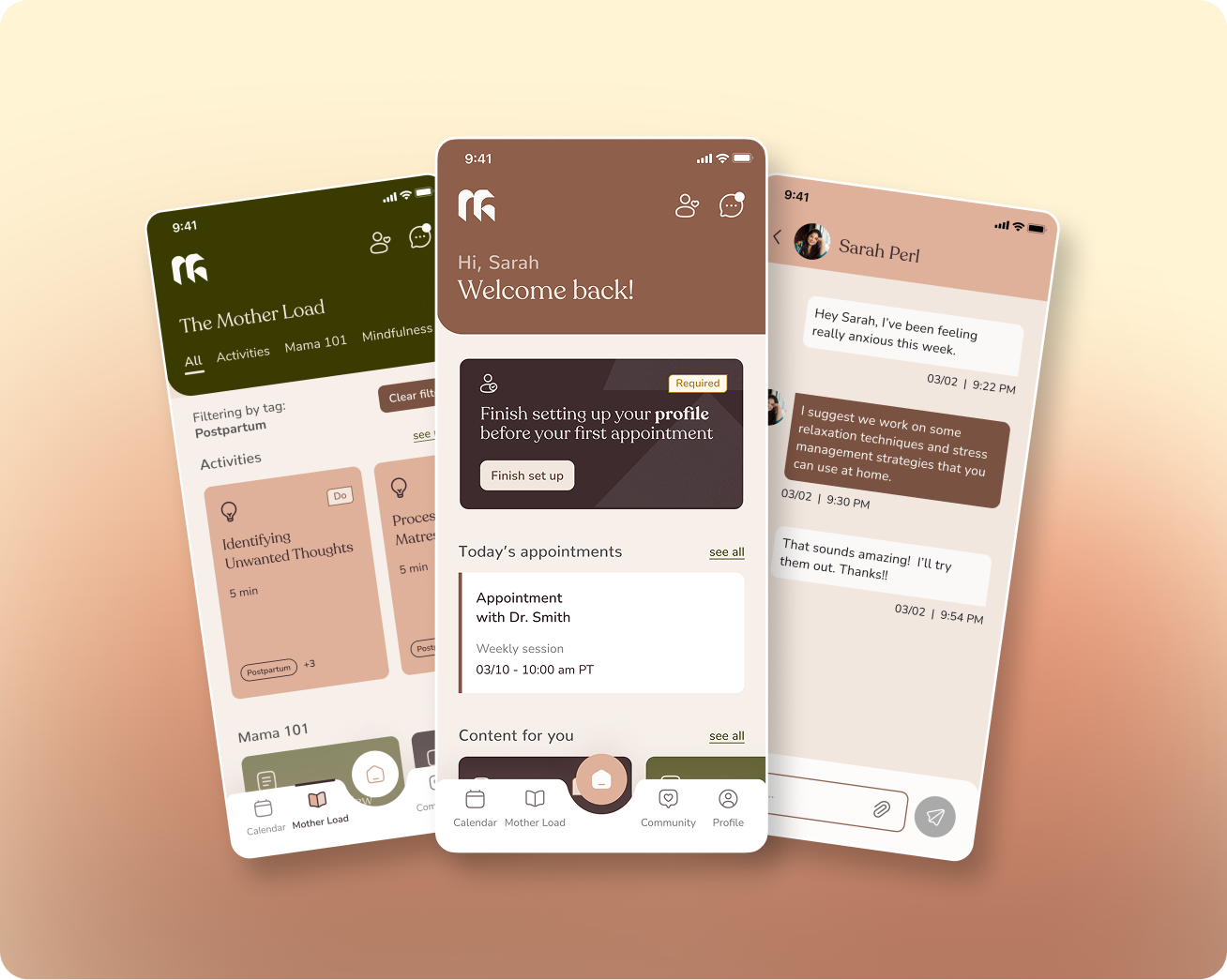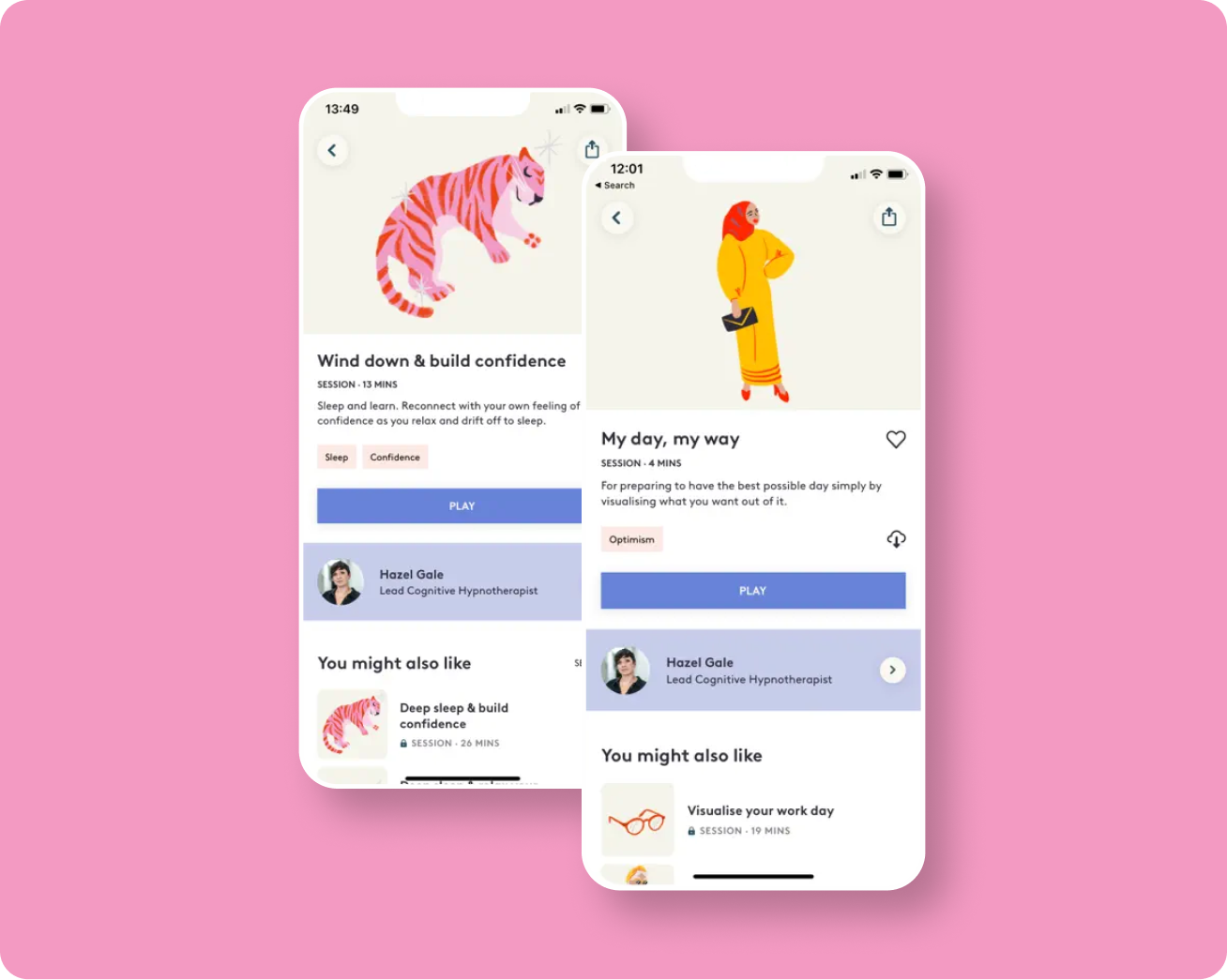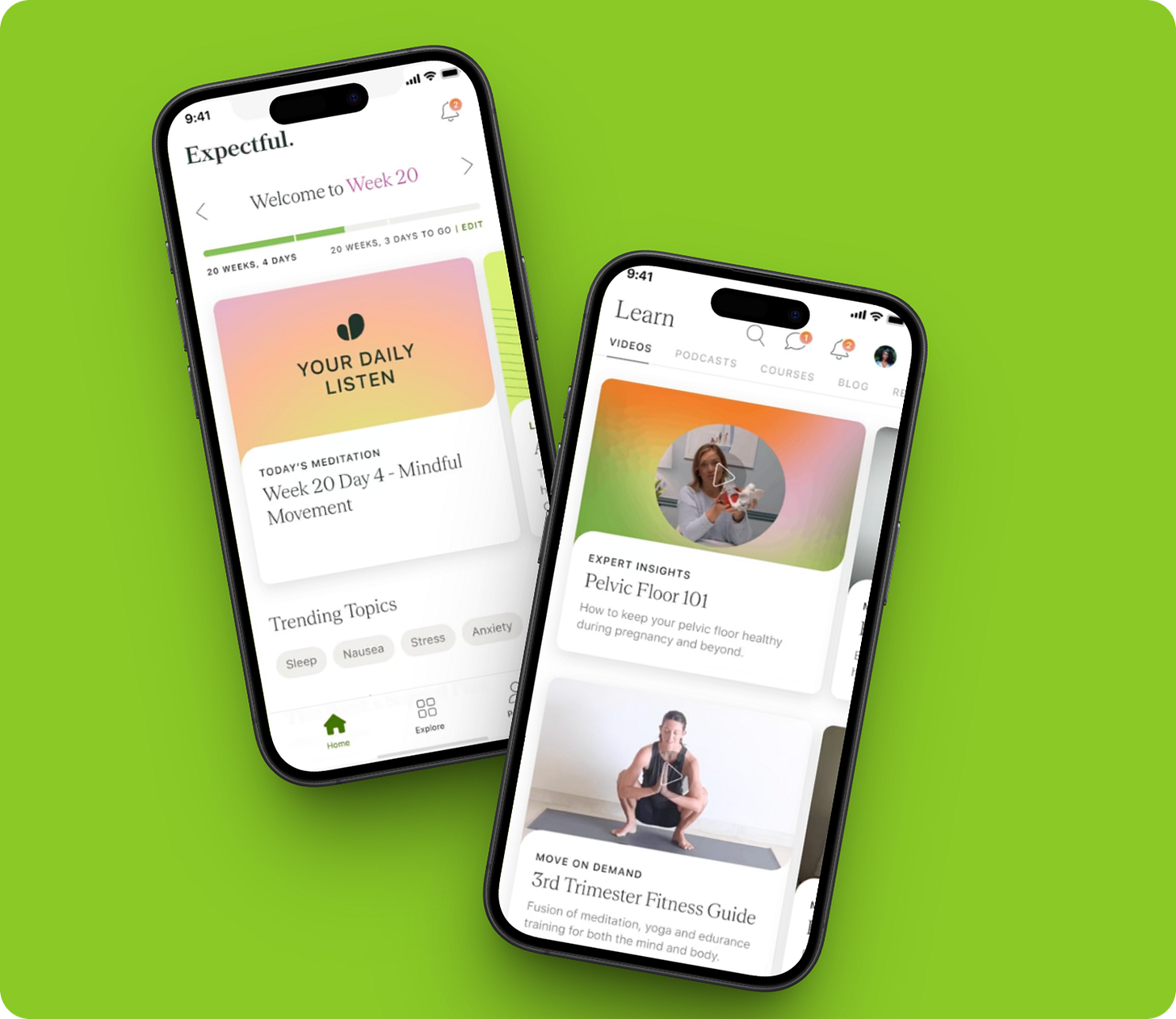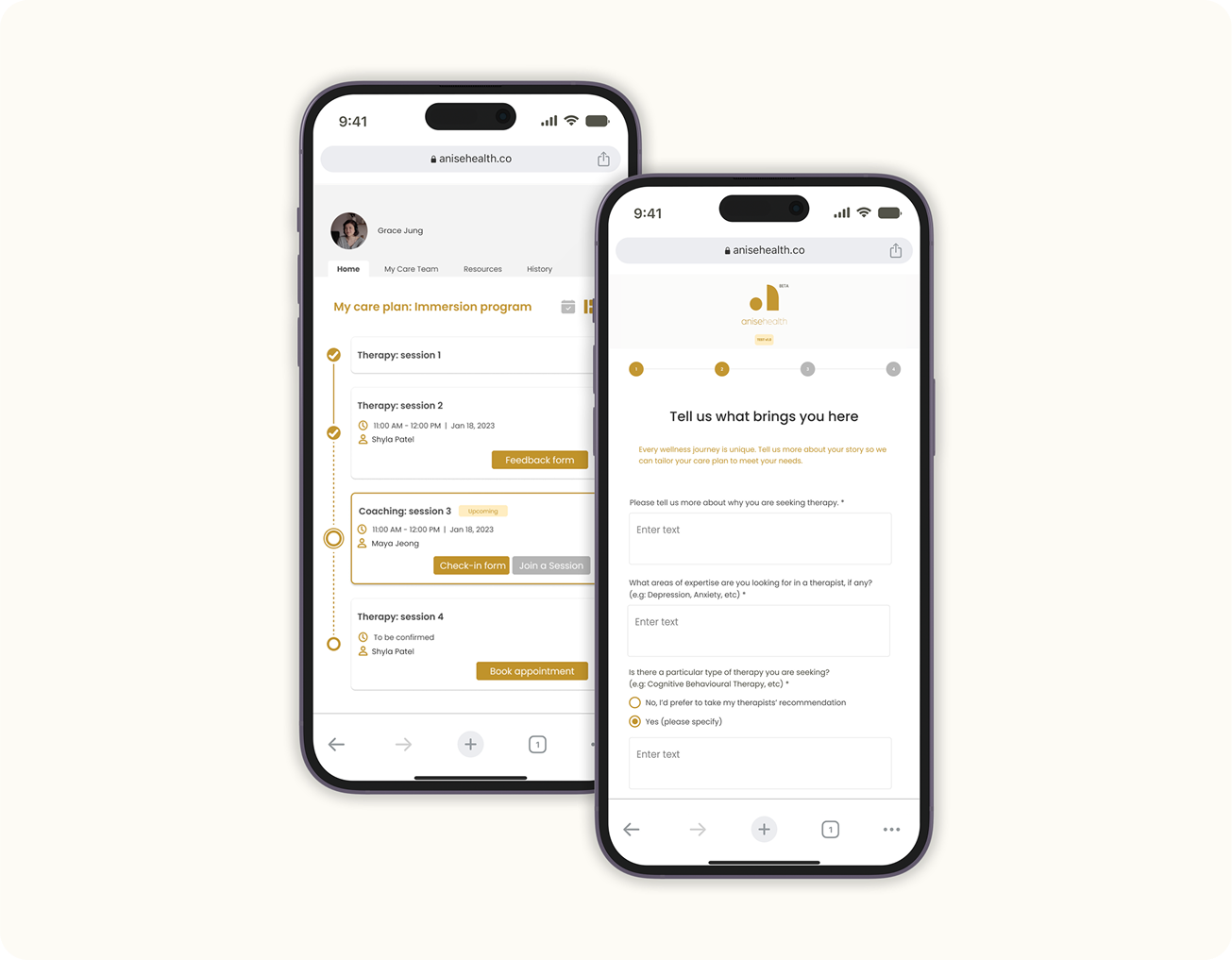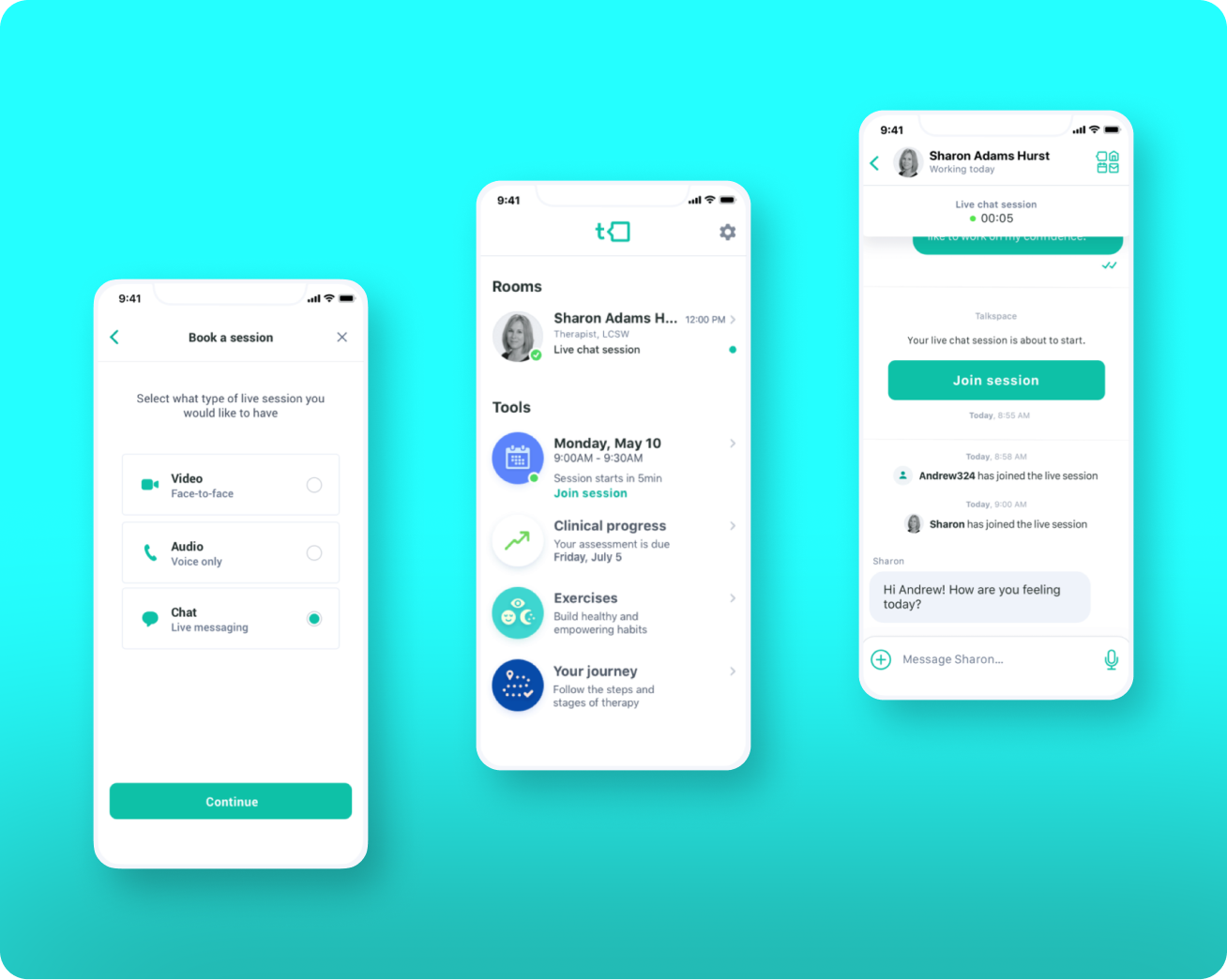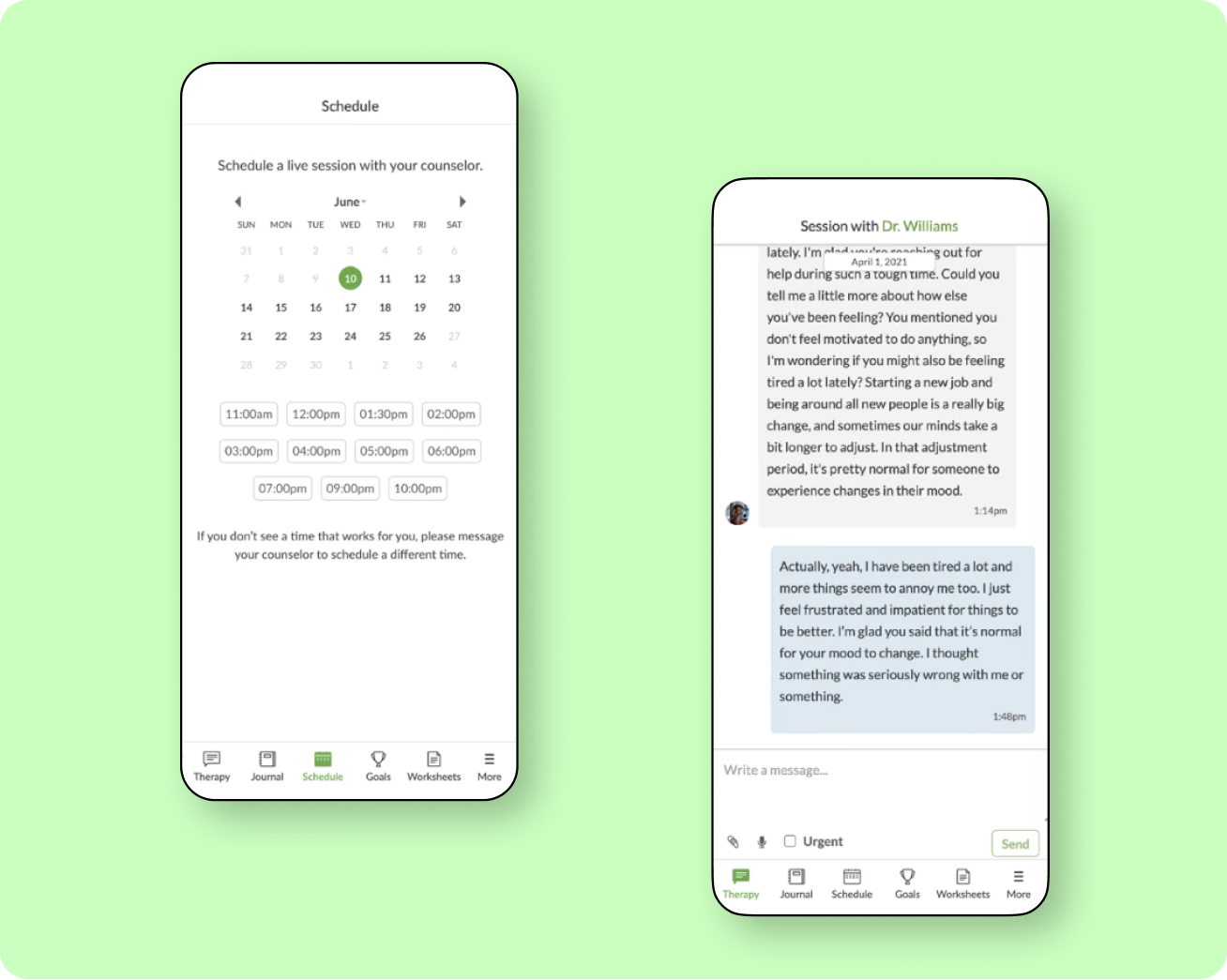Top Mental Health Apps in 2025
Explore the best mental health apps making a real impact in healthtech. From anxiety relief to daily self-care and meditation, find tools that support your well-being in a crowded digital market.
Mental health is no joke. It is estimated that there were 53 million additional cases of depression disorders and 76 million additional cases of anxiety during the pandemic1. Quite staggering figures that do not seem to be going down. Our way of living is making us more anxious and depressed than ever before in history, paying close attention to our mental wellness is a must.
Given this context, Digital health has proven itself to be an advantage in democratizing access to mental health treatment and different self-care resources. As of today, there are at least 10,000 mental health and wellness apps available 2. It is safe to say that not all these apps are the same and more will continue to appear. The US mental health market was valued at $436.80 billion in 2023 and is expected to reach $623.07 billion by 20323.
This listicle aims to highlight some of the best mental health apps out there and provide you with tools to choose the one that suits you best or simply understand what consumers are prioritizing. Since the market offers a plethora of options, we have narrowed it down to showcase those that are genuinely changing the game.
What are mental health apps?
Before we begin, let's revisit the basics: Mental health apps are mobile tools designed to help users manage their mental well-being. Digital health is transforming mental health care by enabling the design and development of apps that target particular niches, ultimately helping more people along the way. By using an app, people can easily obtain treatment and relief or reinforce adherence to their treatment. Given that they offer different approaches and goals, we have identified X apps that are top-tier in their respective areas of expertise.
Let's dive in.
Best wellness & behavioral health apps
These might be the most popular apps on the market, and you may know most of our picks already. Let us say they are popular for a reason. They deliver on their promises and provide a wealth of value, ranging from guided meditations and mindfulness practices to cognitive-behavioral therapy (CBT) techniques. Some research suggests that these apps can help reduce symptoms of anxiety, depression, and other mental health conditions.
Our top editor's pick is:
1. Calm
Calm might be one of the most popular apps out there. This top-rated app offers over 500 Sleep Stories, soundscapes, and guided meditations to support better rest. Quick tools, such as the 60-second Breathe Bubble and Panic SOS, help ease stress, while expert-led sessions and daily content promote emotional clarity and resilience.
Availability: Calm is available on iOS, Android, and the Web, in addition to Apple TV, Apple Watch, Google Wear OS, Samsung Health, Samsung TV, and Sonos.
Pricing: The app offers a free plan with limited features, with full access available via a subscription at $39.99/year.
2. Lumia
Light-it's healthcare development team brings you Lumia, the first AI meditation app designed for your unique needs. It delivers personalized sessions based on your input, current level, and preferred style, meeting you exactly where you are on your mindfulness journey. The app will soon launch so join the waiting list now!
Availability: The app will be available on the App Store (iOS) and Play Store (Android).
Pricing: The app offers a free plan with limited access, and full access will be available via a subscription at $15/month.
3. Headspace
Headspace offers 1,000+ meditations, sleep tools, and expert-led content to support focus, mood, and relaxation. With mental health coaching, therapy, and its AI guide, Ebb provides personalized, long-term support.
Availability: Available on the App Store (iOS) and Play Store (Android)
Pricing: The app offers a 14-day free trial, with full access available via a subscription starting at $12.99/month or $69.99/year
4. Oxford Mindfulness App
Thought by the Oxford Mindfulness Foundation and brought to life by the Light-it team, this app supports mental well-being through research-based mindfulness and is designed to help users build and sustain a consistent practice. It features a library of guided meditations, live teacher-led sessions, and self-paced introductory courses, all rooted in evidence-based approaches.
Availability: Committed to making mindfulness accessible, the app is available for download from the App Store and Google Play. It is available in over 170 countries.
Pricing: The app offers a free plan with access to select meditations, with full access available via a subscription at £5.99/month or £59.99/year. Self-paced courses are sold separately for £24.99.
Best mood-tracking apps
Mood-tracking apps may not be new to you. These tools have earned their popularity by helping users better understand their emotions, patterns, and triggers. They combine simplicity with powerful features like journaling, mood analytics, and even CBT-based prompts. Over time, this kind of tracking can support emotional awareness and mental health.
These are our top choices if this is what you are looking for:
5. Daylio
Daylio is a self-care companion that makes it easy to track mood, habits, and daily activities with no writing required. With just a couple of taps, users can log their feelings and record what they've been up to. The app then translates this input into clear visual insights, helping users spot patterns and better understand their emotional rhythms.
Availability: Available on the App Store (iOS) and Play Store (Android)
Pricing: The app offers a 7-day free trial, with full access available via a subscription at $1.99/month or $23.99/year.
6. Bearable
Bearable is a customizable health tracker designed to help users manage chronic pain symptoms, mood, and well-being with ease. By logging data, users can explore how daily habits, treatments, and lifestyle choices impact their health. Built with input from real users, Bearable also supports more explicit conversations with healthcare providers.
Availability: Available on the App Store (iOS) and Play Store (Android)
Pricing: The app offers a free plan with core features, with full access available via a subscription at $34.99/year.
7. Moodfit: Mental Health Fitness
Moodfit offers customizable tools to support mental health by helping users track moods, reduce stress, and build healthier thought patterns. Based on CBT and nervous system insights, it includes journaling, breathwork, and lifestyle tracking and can serve as a helpful companion to therapy.
Availability: Available on the App Store (iOS) and Play Store (Android)
Pricing: The app offers a free plan with basic tools, with full access available via a subscription (pricing varies by region)
Best mental health apps for women
From anxiety and burnout to sleep and life transitions like motherhood, these teletherapy and wellness apps offer support that reflects women's real experiences. With licensed therapists, flexible formats, and tools that fit into your day, getting help feels more personal.
8. Mavida Health
Mavida Health is a digital platform for perinatal mental health, offering personalized therapy, medication support, and expert-backed content. Designed for every stage, from preconception to postpartum, it combines virtual care, symptom tracking, and inclusive community support to help women and families manage emotional well-being with ease and evidence-based tools.
Availability: Available on the App Store (iOS) and Play Store (Android)
Pricing: The app offers access to community perks for free, but consultations are typically covered by most insurers, including Horizon Blue Cross Blue Shield in New Jersey, Cigna/Evernorth, and Aetna in California, New York, and New Jersey.
9. Clementine
Clementine is a mental wellness app designed for women, offering guided sessions that incorporate Cognitive Hypnotherapy, breathwork, and mindfulness to help reduce stress, improve sleep, and boost confidence. Sessions are designed to fit into daily routines, whether you're commuting, getting ready for bed, or taking a short break.
Availability: Available on the App Store (iOS) and Play Store (Android)
Pricing: The app offers a 7-day free trial, with full access available via a subscription at £7.99/month, £15.99/quarter, or £39.99/year.
10. Expectful
Expectful is a trusted health and wellness resource for fertility, pregnancy, and postpartum, offering evidence-based guidance to support mind and body. Described as "Prenatal Vitamins for Your Mind," it provides expert-backed content on fertility, prenatal care, labor, postpartum recovery, feeding, and newborn care, with a strong focus on mental well-being throughout the journey.
Availability: Available on the App Store (iOS) and Play Store (Android) and also offers plenty of free online resources on their website.
Pricing: Expectful offers monthly recurring subscriptions starting at $8.99 monthly
Best Teletherapy Apps
Teletherapy apps have changed how people access mental health care. Whether you're navigating stress, anxiety, relationship challenges, or just want someone to talk to, these platforms bring licensed therapists directly to your device. They combine professional support with flexibility, letting you connect by video, audio, or even chat on your schedule.
With personalized matching, easy provider switching, and often insurance coverage or lower costs, teletherapy makes care more approachable and consistent.
Here are our top picks if you're looking for expert support:
11. Brave Health
Brave Health offers accessible, affordable mental health care through virtual therapy and psychiatry. Services include individual and group therapy, medication management, and specialized programs like DBT, PMAD, and EMDR. With video appointments and in-network coverage through most insurance plans, Brave makes quality care easier to reach.
Availability: The care is 100% virtual. Licensed providers offer virtual therapy in a growing number of states across the country, requiring the provider to be licensed in the state where the client lives.
Pricing: Brave Health is in-network with most insurance plans, including commercial, Medicaid, and Medicare
Heads up! If you're viewing this in your email, you might miss some details because of its length. For the complete article, click here!12. Anise Health
Anise Health offers culturally responsive mental health care tailored to the Asian community. Through online therapy, personalized care plans, and providers trained in cultural sensitivity, it addresses the unique intersection of identity, culture, and well-being. With a focus on inclusivity and measurable outcomes, Anise provides a more relevant and effective alternative to standard care.
Availability: It is currently accepting new clients in Florida, Massachusetts, Washington, California, and New York.
Pricing: the company states that it proudly accepts insurance from partners in California, New York, Massachusetts, Florida, Washington, and Texas
13. Talkspace
Talkspace offers online therapy and psychiatry with flexible, affordable access to licensed providers. Services include individual, teen, and couples therapy, as well as medication management. Users can message their therapist at any time, schedule live sessions, and easily switch providers, making mental health support more accessible and personalized.
Availability: The service is 100% online, accessible via the Talkspace app or website, allowing users to connect from anywhere with their device
Pricing: Talkspace is designed to be affordable. Many users have access through their employer or Employee Assistance Program (EAP) at no cost. Most major insurance plans are accepted, with many members paying $0 out-of-pocket (average copay: $15). For self-pay, therapy plans begin at $69 per week.
14.Betterhelp
BetterHelp is one of the world's largest online therapy platforms, connecting users with licensed therapists for support with anxiety, depression, relationships, trauma, and more. Therapy is flexible and can be done via text, chat, audio, or video. It is also personalized through smart matching based on your needs. Switching therapists is easy, and support is available anytime, from anywhere.
Availability: 100% online, accessible from any mobile device or computer.
Pricing: Therapy with BetterHelp typically costs between $70 and $100 per week, depending on location, preferences, and therapist availability. The service accepts HSA/FSA cards and is eligible for reimbursement through most providers.
Are mental health apps helpful?
So, all the apps and information sound too good to be true, right? Let’s start by saying that most of the apps we mentioned rely heavily on or encourage a holistic approach to mental care. We believe that health, and especially mental health, does not have a one-size-fits-all solution, and it is precisely for that reason that many different apps and treatment methods are being created. Technology presents itself as an ally to democratize care, and obvious benefits pop to mind when thinking about mental health apps:
Flexibility: To have the freedom to use it whenever and wherever you are is undoubtedly a perk when it comes to accessing care. Especially care that has long been stigmatized and judged.
Lower cost: Prices are usually lower with these apps, and travel costs are typically null.
Personalization: Apps offer the possibility of targeted and personalized information to the user's specific case. Of course, personalization is enhanced now with AI.
Empowerment: This approach to mental care empowers the user to take an active role and gain valuable insights to understand and take action.
Of course, not everything that shines is gold. There are some considerations to have in mind when using these apps:
Data Privacy: Always check where and what type of information you are providing. Ensure that, if you plan to provide input or have a call with a therapist through the app, you are certain they are following HIPAA guidelines regarding PHI (Protected Health Information).
Credibility: It is essential to verify your app's credentials before using them. Your mental health is critical, and you should seek professional advice and consult trusted sources. Before starting, do your research. Consider things like its funding. If it's trusted by users and/or third-party payers, such as insurance plans, it can speak volumes about its reputation. If you still have doubts, there are resources like Mindapps that can help you.
Regardless of your choice, it is clear. The relationship between mental health treatments and technology holds so much potential for positive impact that it is quite impossible to grasp where we will be in a few years. With apps and startups being created as we speak, we rely on you to help us keep this list up to date. If you know one that is not featured and you want to share it, let us know in the comments!
Think someone should be featured in this list? Submit it here👇
According to the M-Health Index & Navigation Database, developed by the Division of Digital Psychiatry, a collaborative research group from a Harvard Medical School affiliate.
As stated in the Mental Health Market Size, Share, and Growth Analysis by Skyquest



